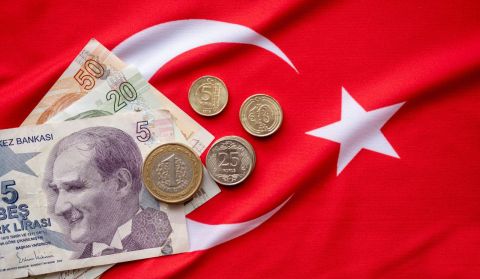ALBAWABA - The Turkish lira has experienced successive declines in recent times, attributed to the continuous reduction of interest rates by the central bank. However, what is the connection between the Turkish elections and its decline again?
The Turkish lira, which has experienced successive declines in recent times, faced further challenges after the 2023 elections. In addition to the factors mentioned earlier, the Turkish lira's value was impacted by the currency reaching its historical peak against the US dollar. This event set a new record for the price of gram gold, which rose to 1320 liras for the first time. However, as the USD/TRY retreated to 20.63, the price of gram gold also decreased to 1304 liras.
The decline in the value of the Turkish lira after the 2023 elections may be attributed to several factors. However, it's important to note that the state of the economy and currency value depends on multiple complex factors, and analyzing the impact of events on the financial market requires comprehensive assessment and ongoing monitoring. Here are some factors that could potentially contribute to the decline in the Turkish lira:
- Political stability: Political direction and stability may influence confidence in the Turkish economy and, consequently, the currency's value.
- Inflation: If there is an increase in the inflation rate in the country, it can affect the purchasing power of the Turkish lira and lead to its depreciation.
- Budget deficit: The budget deficit can also impact the Turkish lira. If there is a high budget deficit and growing public debt, it can undermine confidence in the economy and affect the currency's value.
- Global economic stability: Currencies worldwide are influenced by changes in global economic conditions. If there is global economic instability, it can lead to investors fleeing from emerging markets like Turkey, thus impacting the value of the Turkish lira.
- Geopolitical tensions: Local, regional, and international geopolitical tensions can also have an impact on the currency. Political conflicts, trade disputes, or regional instability can create uncertainty and affect the value of the Turkish lira.
It's important to note that these factors are not exhaustive, and other economic, political, or external factors can also contribute to fluctuations in the value of the Turkish lira.









